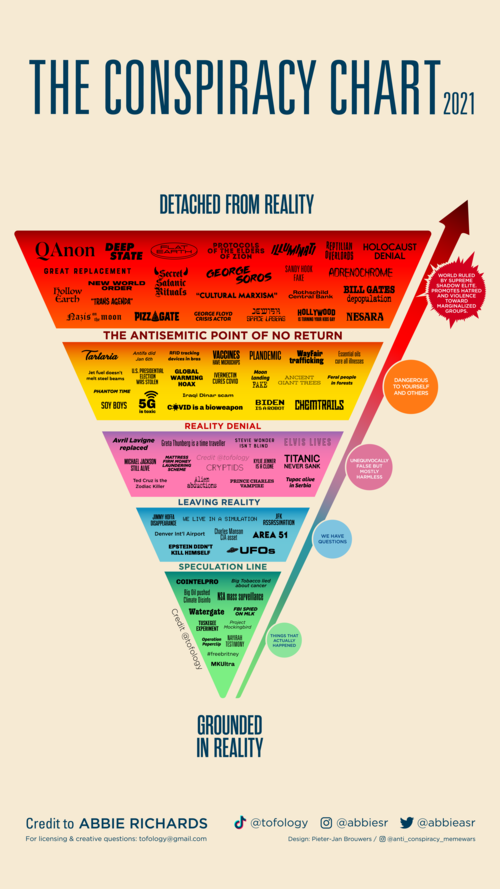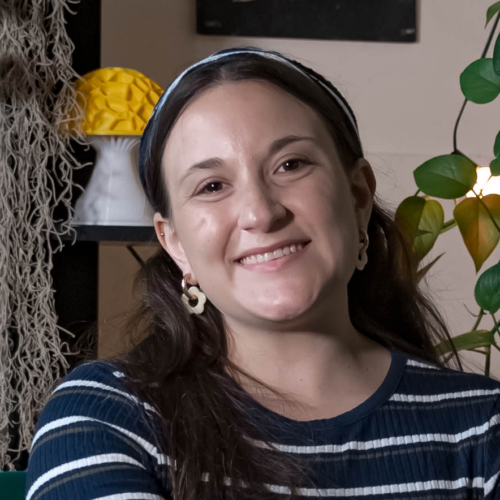BIOGRAPHY
Abbie Richards is a TikToker and TikTok misinformation researcher. She specializes in understanding how misinformation, conspiracy theories, and extremism spread on TikTok and she creates educational content that explains these complex issues to a wider audience.
Abbie believes that understanding our new world of information is a right, not a privilege, and should therefore be as accessible as possible. So she puts it on TikTok. She’s amassed a multi-platform following of over half a million people who are interested in learning about these issues. For her work as an online educator, Abbie was included in the Forbes 30 Under 30 2023 cohort.
Abbie is also a co-founder of EcoTok, a collective of 18 environmentally-focused influencers that specializes in social media-based climate communication.
After receiving a bachelor’s in environmental science in 2018, Abbie trained as a stand-up comedian. During the pandemic, she learned to combine her passion for entertainment with her interest in information ecosystems to create engaging educational content. In 2022, she earned a master’s degree in climate studies from Wageningen University and Research where she researched the intersection between climate change and misinformation.
Abbie’s research has examined difficult topics like radicalization pathways on TikTok, the virality of COVID-19 misinformation, and the rise of conspiracy theories in the digital age. She’s the creator of the Conspiracy Chart (see below), a graphic visually categorizing conspiracy theories that has become a tool used around the world. Her chart has been translated into multiple languages and published in books.
For more information on Abbie Richards’ speaking, contact Leo at leo@vbqspeakers.com.
ABBIE RICHARDS: SPEAKER
Abbie has spoken about the popularity of conspiracy theories in digital environments, far-right extremism, white supremacy and antisemitism on TikTok, the necessity of creator participation in social impact work, the intersection between climate change and misinformation, the importance of climate literacy as a means of social resiliency, and the possibilities for creating more equitable information ecosystems.

